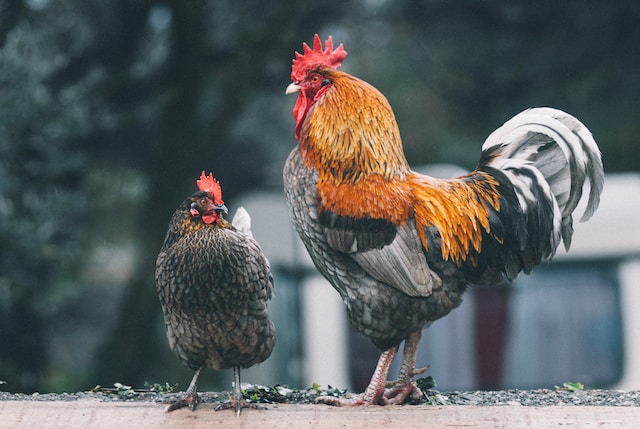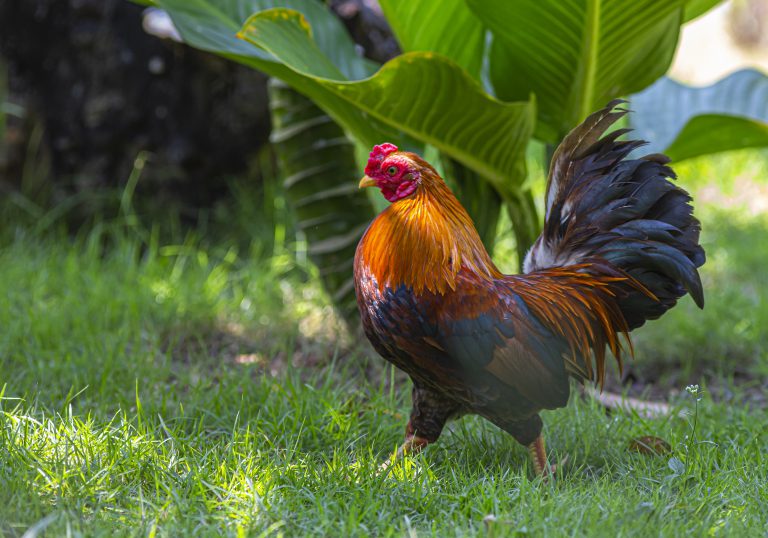The popularity of chickens as pets and domesticated animals has taken off hugely in the last few years, yet it can be tricky to know exactly the type of foods you can treat them with, specifically for this article, can chickens eat pineapple?
Chickens are surprisingly resilient and can eat lots of foods, like kitchen scraps, leftovers, and various fruits. The good news is that pineapple is indeed safe for chickens to eat, when given in the right quantities, and as part of a balanced and varied diet.
Most chicken pet owners report that pineapples are very much enjoyed by their chickens, and pineapple is safe for chickens to eat but, as always, only in moderation.

What’s the best way to feed your chicken some pineapple?
It doesn’t take much convincing to get your chicken to eat pineapple. The fruit is sweet, delicious, and music to a chicken’s pallette.
Chickens, it’s worth remembering, do not have teeth (isn’t that a weird mental image?) and that means, so as long as you cut a pineapple properly by peeling away the skin, you’ll be left with only the flesh. That’s the part of a pineapple your chicken can eat.
Which parts of a pineapple can chickens eat?
Some chicken lovers report that their chickens will eat the majority of a pineapple, usually only leaving some of the tougher inedible skins.
If you want to play it safe, simply feed your chicken the the edible yellow fleshy part of the pineapple.
Are the nutrients in pineapple good for chickens?
In a study undertaken by students at the University of Southern California, there was reasonable evidence to suggest that bromelain – a unique enzyme one of the main and beneficial components of pineapple – is useful in helping improve how chickens absorb their feed.
In short, letting your chicken eat pineapple can help them grow bigger!
Dietary bromelain from pineapple has also been shown to improve how well chickens can digest their food, and actively reduces E.coli that’s often found in chicken’s intestinal tracts.
Pineapples have no saturated fat and cholesterol, which means that it reduces the likelihood of your pet chicken developing certain health complications when they eat them.
What should I be worried about?
Like anything, and especially fruits high in sugar, giving pineapple to your chicken should be done in moderation. It doesn’t contain enough all-round macronutrients to fill up a chicken’s needs.
So, all in all, it’s a good idea to give your chicken a little bit of pineapple. You’ll see how quickly they gobble (getit?) it up.
FAQs on Pineapple for Chickens
Yes, chickens can eat small amounts of pineapple peels. However, moderation is key, as the acidity in the peels might upset their digestive system. Make sure to offer them in small pieces and observe their reactions.
It’s not recommended to give chickens a whole pineapple. While chickens can eat small amounts of pineapple as a treat, giving them a whole pineapple could be excessive and potentially harmful due to the high sugar and acid content. It’s best to provide them with small, chopped pieces of pineapple in moderation to avoid any digestive issues.
Pineapple can provide chickens with essential vitamins, including vitamin C and B6, along with minerals like manganese. Additionally, the enzyme bromelain present in pineapple might assist in digestion. While offering variety to their diet and potentially boosting their immune system, it’s crucial to feed pineapple in limited quantities to prevent digestive disturbances due to its natural sugars and acidity.
Yes, you can feed chickens raw pineapple, but it should be given in moderation. The high sugar and acid content of raw pineapple can potentially lead to digestive issues if overconsumed. To minimize the risk, offer small, chopped pieces of raw pineapple as an occasional treat alongside their regular balanced diet. Monitoring their reactions and adjusting the quantity based on their tolerance is advisable.


Reading your article has greatly helped me, and I agree with you. But I still have some questions. Can you help me? I will pay attention to your answer. thank you.